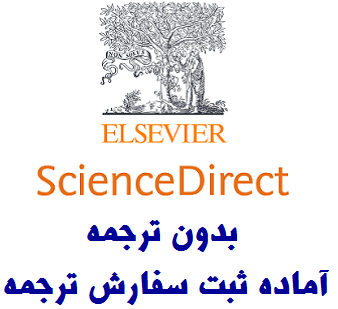
| عنوان فارسی مقاله | هوش هيجانی و فرآيندهای تنظيم هيجان روز به روز: بررسی انگيزه های اشتراک اجتماعی |
| عنوان انگلیسی مقاله | Emotional Intelligence and Day-To-Day Emotion Regulation Processes: Examining Motives for Social Sharing |
| فهرست مطالب | Highlights Abstract Keywords ۱ Introduction ۲ Method ۳ Results ۴ Discussion Declarations of interest Funding References |
| نمونه مقاله انگلیسی | ABSTRACT
There is growing interest in the emotion regulation processes that underlie the adaptive functioning of emotionally intelligent individuals. This study uses experience sampling to examine whether the emotional intelligence (EI) of undergraduate students (N = 84) relates to their day-to-day use of five emotion regulation processes over a five-day period. We also test whether EI predicts motives for one of the emotion regulation processes (social sharing). We measure both ability EI (the brief Situational Test of Emotion Management) and self-rated EI (the Self-Rated Emotional Intelligence Scale). Self-rated EI significantly predicts more social sharing, direct situation modification and reappraisal. Ability EI does not significantly predict any of the five regulation processes. Both ability and self-rated EI are significantly related to greater bonding and relief motives for social sharing. Self-rated EI is also related to recovery motives. These results suggest that it is the self-beliefs about one’s emotional abilities, rather than emotion knowledge, which influence the emotion regulation processes people use in daily life. Introduction Emotional intelligence (EI) and emotion regulation are two conceptually related approaches to understanding the emotional experiences people have. EI describes individual differences in the abilities and traits involved in perceiving, using, understanding, and managing emotions (Mayer, Caruso, & Salovey, 2016) whereas emotion regulation describes the processes by which people control which emotions they have and when they have them (Gross, 1999). We know that some emotion regulation processes are more effective than others in controlling negative emotions (e.g., perspective taking is generally effective whereas ruminating is generally ineffective; Bushman, 2002; Aldao, Nolen-Hoeksema, & Schweizer, 2010) and that emotionally intelligent people experience fewer negative emotions (Sanchez-Alvarez, Extremera, & Fernandez-Berrocal, 2016). What is still largely unclear is whether individual differences in EI relate to differences in the emotion regulation processes people use. The current research proposes to address this by examining whether ability and self-rated EI predict the use of five different emotion regulation processes in daily life. We also examine whether EI predicts differences in people’s motivations for socially sharing their emotions. Given the importance of both EI and emotion regulation to mental health and wellbeing outcomes, our research is relevant for understanding the mechanisms by which personattributes (EI) translate into behaviours (regulation) known to increase such outcomes. |
| نمونه ترجمه کامپیوتری |
چکیده علاقه رو به رشد فرایندهای تنظیم احساسات وجود دارد که عملکرد سازگار افراد هوشمند را تحت تأثیر قرار می دهد. این مطالعه با استفاده از نمونه گیری تجربی برای بررسی اینکه آیا هوش هیجانی دانشجویان مقطع کارشناسی (84 = N) مربوط به استفاده روزمره از پنج فرآیند تنظیم احساسات در طی یک دوره پنج روزه است یا خیر. ما همچنین آزمون می کنیم که آیا EI انگیزه های یکی از فرآیندهای تنظیم احساسات (اشتراک اجتماعی) را پیش بینی می کند. ما هر دو توانایی EI (تست وضعیت وضعیتی مدیریت احساسات) و EI خود (Self-rated Emotion Intelligence Scale) را اندازه می گیریم. Self-rated EI به طور قابل ملاحظه ای بیشتر به اشتراک گذاری اجتماعی، تغییر وضعیت وضعیت و ارزیابی مجدد را پیش بینی می کند. توانایی EI به طور قابل توجهی هیچ یک از پنج فرایند تنظیم را پیش بینی نمی کند. هر دو توانایی و عزت نفس، به طور قابل توجهی به انگیزه های تسریع و تسکین بیشتر برای اشتراک اجتماعی کمک می کنند. خود ارزیابی EI نیز مربوط به انگیزه های بازیابی است. این نتایج نشان می دهد که اعتقادات خود در مورد توانایی های عاطفی یکی است، نه دانش احساسی، که بر روند تنظیم عواطف مردم در زندگی روزمره تاثیر می گذارد. توجه؛ (توجه داشته باشید که این ترجمه ی کامپیوتری توسط نرم افزار انجام شده و ویرایش نشده است و احتمال وجود اشتباه در آن وجود دارد. در صورت ثبت سفارش، ترجمه توسط مترجمین مجرب انجام خواهد شد. برای مشاهده نمونه ترجمه های تخصصی و اخیر مترجمین جهت اطمینان از کیفیت ترجمه، اینجا کلیک نمایید.) |
| سال انتشار | 2019 |
| ناشر | الزویر |
| مجله | شخصیت و تفاوت های فردی – Personality and Individual Differences |
| کلمات کلیدی | هوش هیجانی، مقررات عاطفی، اشتراک اجتماعی، نمونه برداری تجربی |
| کلمات کلیدی انگلیسی |
Emotional intelligence, Emotion regulation, Social sharing, Experience sampling |
| صفحات مقاله انگلیسی | 5 |
| مناسب برای رشته | روانشناسی |
| مناسب برای گرایش | روانشناسی شناخت |
| توضحیات | این مقاله انگلیسی جدید بوده و تا کنون ترجمه نشده است. جهت ثبت سفارش ترجمه از لینکهای زیر استفاده نمایید. |
| دانلود مقاله انگلیسی | ○ دانلود رایگان مقاله انگلیسی با فرمت pdf (کلیک کنید) |
| سفارش ترجمه فارسی | ○ سفارش انجام ترجمه و تایپ این مقاله (کلیک کنید) |
| سایر مقالات این رشته | ○ مشاهده سایر مقالات رشته روانشناسی (کلیک کنید) |